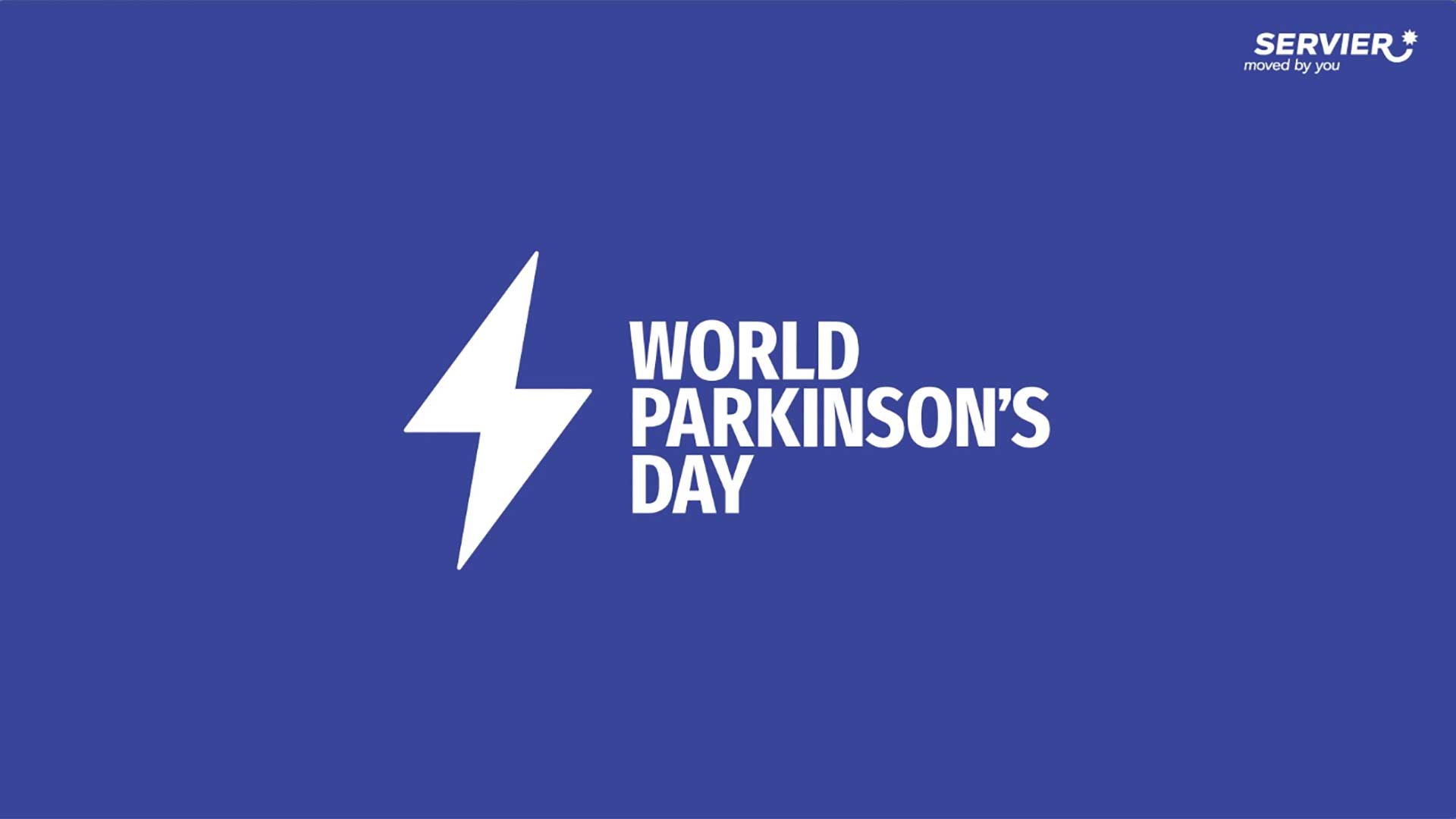Second leading neurodegenerative disease after Alzheimer’s, Parkinson’s affects over 10 million people worldwide. What are its symptoms? Where do we stand in terms of research, and how has Servier committed to neuroscience? We break it down for you through a special graphic insight on the occasion of World Parkinson’s Day this Tuesday, April 11.
A disease that attacks motor functions control
Parkinson’s disease is caused by a loss of dopamine-producing cells in the brain. This leads to a number of issues, namely a slowness in movements and a decrease in the ability to control voluntary movements, balance issues, rigidity or stiffness in the muscles, and tremors at rest.
Parkinson’s and its symptoms vary considerably from one person to the next. In advanced stages, the disease progressively leads to a complete loss of independence – with a drastic impact on patients’ quality of life.

In figures:
10
million people affected worldwide1
2nd
most common neurodegenerative disease after Alzheimer’s2
60 years old
Average age when diagnosed3
More than 12
million people could be affected by Parkinson’s in 20404
Advances in research
Research is advancing understanding of the disease’s causes and the mechanisms responsible for degenerating neurons. Today, researchers are taking an interest in the mechanisms that could slow neuronal degeneration, or even put a stop to it.
Our commitment to neuroscience
The fight against neurodegenerative diseases is a part of our 2030 ambition to be an innovative player in oncology, neuroscience and immune-inflammation. We aim to address unmet medical needs and to improve patient quality of life.
Neurodegenerative diseases are chronic pathologies that progressively lead to a loss of independence. We are focusing our research and development efforts in drug discovery on new medicines that will slow the progression of the rare diseases affecting movement, like Parkinson’s.
To slow the progression of this disease, and others that are clinically-related, Servier is focusing its research efforts on the discovery of targeted therapies.
Our partnership with Oncodesign Precision Medicine
In June 2021, Servier and French biotech Oncodesign Precision Medicine announced the selection of a drug candidate that acts on a protein which could be a cause of Parkinson’s. In September 2022, Servier acquired an exclusive worldwide license option to this drug candidate, for which the phase I study is currently ongoing.
We are developing this drug candidate for and with patients to better meet their needs. This is why we have been partnering for several years with the patient association, Parkinson Europe, which is actively raising awareness. They work with other organizations around the world to spread the latest information, share good practices, and bring the latest developments in research front and center.
Nous développons ce candidat-médicament avec les patients pour répondre au mieux à leurs besoins. C’est pourquoi, nous collaborons depuis plusieurs années avec l’association de patients Parkinson Europe qui mène des actions de sensibilisation et travaille avec d’autres organisations mondiales pour fournir des informations actuelles, partager les bonnes pratiques et mettre en évidence les évolutions de la recherche.
1 www.parkinson.org
2 Global Burden of Disease Study, 2015
3 www.hopkinsmedicine.org.
4 The Emerging Evidence of the Parkinson Pandemic – PMC (nih.gov)

